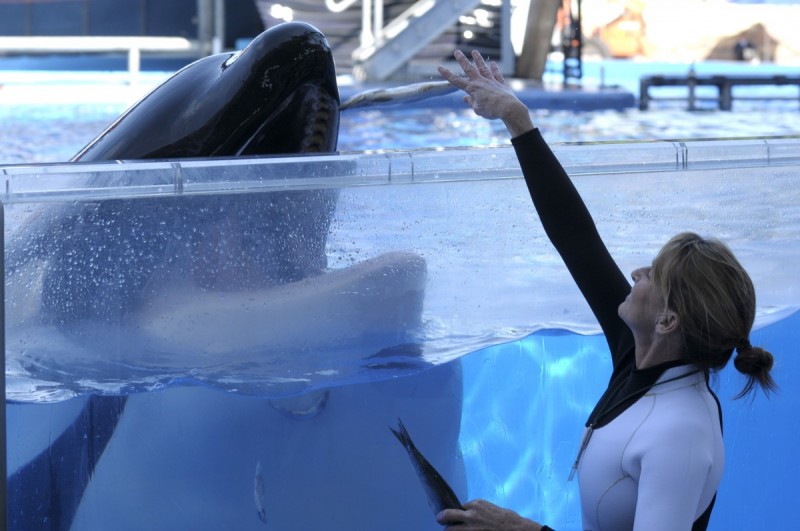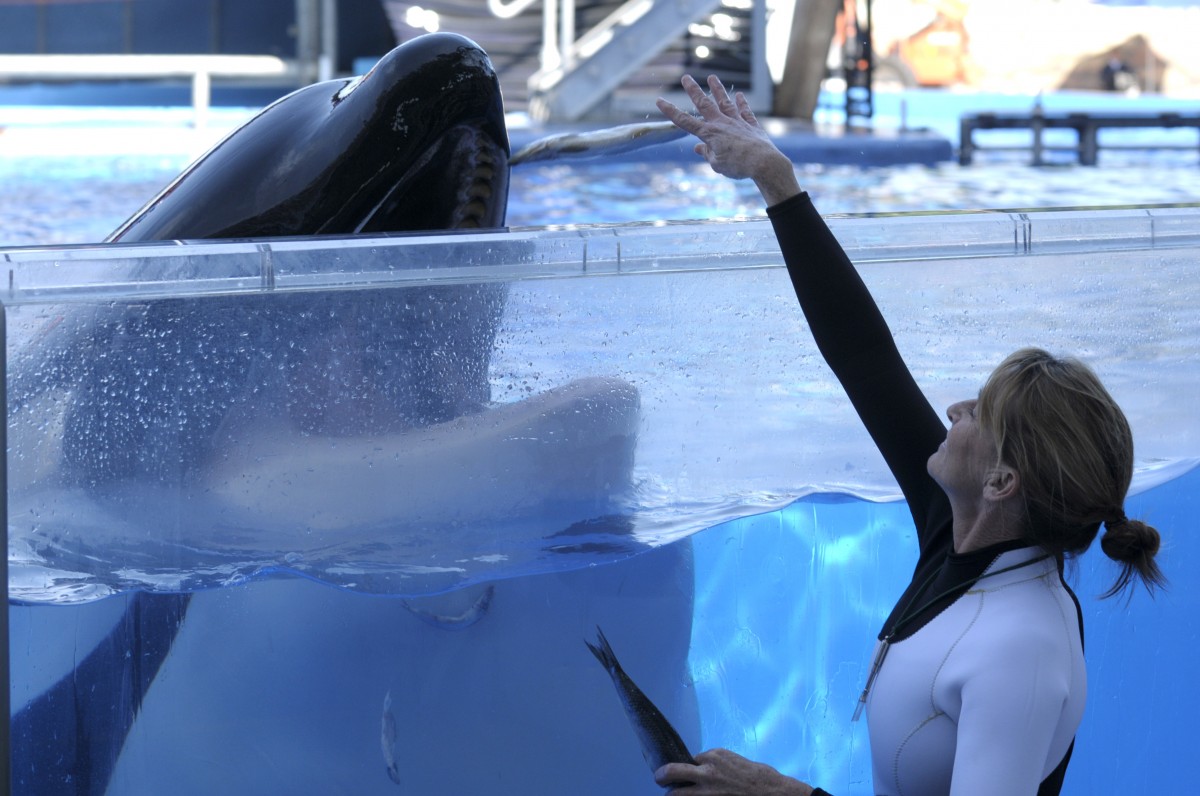
SAN DIEGO — An employee of SeaWorld reportedly spent years undercover as an animal rights activist in order to attempt to discredit the People for the Ethical Treatment of Animals (PETA). It’s the latest sign that the controversial corporation is feeling the pressure from a high-profile documentary exposing dangerous conditions and routine animal abuse at their parks.
PETA officials first leveled the charges of infiltration against SeaWorld in a report on Bloomberg Business, published last Tuesday. An activist known as “Thomas Jones” spent years working undercover with the animal rights organization, protesting at New York’s Thanksgiving Day Parade in 2013 and even getting arrested with other activists during a sit-in at the 2014 Rose Parade in Pasadena, California. However, officials claim Jones is actually Paul McComb, a 28-year-old employee of SeaWorld.
Members of the animal rights group first became suspicious of McComb after the Rose Parade, when police released him without charge and even lost records of his arrest, according to Matthew Strugar, director of litigation for the PETA Foundation, in an appearance last week on Democracy Now!
“[P]eople were waiting, sitting around, still waiting for him to be released. And they called him, and he said, ‘Oh, I got out a long time ago,’” Strugar told Democracy Now!’s Amy Goodman. “We looked into it. He never showed up on any arrest sheets.”
From there, a combination of Internet sleuthing and photo and video evidence helped identify McComb. SeaWorld, for its part, refused to comment on the infiltration except to issue a statement saying: «We are focused on the safety of our team members, guests and animals and beyond that we do not comment on our security operations. This is a responsibility that we take very seriously, especially as animal rights groups have become increasingly extreme in their rhetoric and tactics.”
Although SeaWorld claims animal rights groups are becoming “increasingly extreme,” it was actually McComb who is responsible for some of the most violent rhetoric surrounding recent protests. Posing as Jones, the undercover SeaWorld employee posted on Twitter suggesting activists should “grab pitchforks and torches” and “burn [SeaWorld] to the ground.”
SeaWorld’s stock prices plummeted and profits decreased thanks to increased attention on allegations of animal abuse and unsafe working conditions at the marine parks in recent years. “Blackfish,” a 2013 CNN documentary, exposed routine animal abuse that dramatically shortens the lifespan of SeaWorld’s captive killer whales, as well as improper animal handling that led to the death of an experienced orca trainer, Dawn Brancheau, in 2010.
“[W]hen people make a lot of money by abusing animals, they don’t like having that abuse exposed, because it means they lose profits, and consumers don’t like that very much,” said Will Potter, a journalist specializing in environmental and animal rights issues, in the same Democracy Now! interview. “And that’s exactly what’s happened with SeaWorld, and especially with ‘Blackfish.’”
It’s not the first time corporations have been exposed hiding within activist groups, as Kevin Gosztola observed on Firedoglake. Emails exposed by Anonymous hacktivists and WikiLeaks in 2012 implicated Strategic Forecasting, an Austin, Texas-based private intelligence agency in spying on several groups, including a previous attempt to infiltrate PETA on behalf of Coca-Cola.
Watch “PETA: SeaWorld Employee Infiltrated Animal Rights Group, Called for Grabbing «Pitchforks & Torches» on Democracy Now!:


